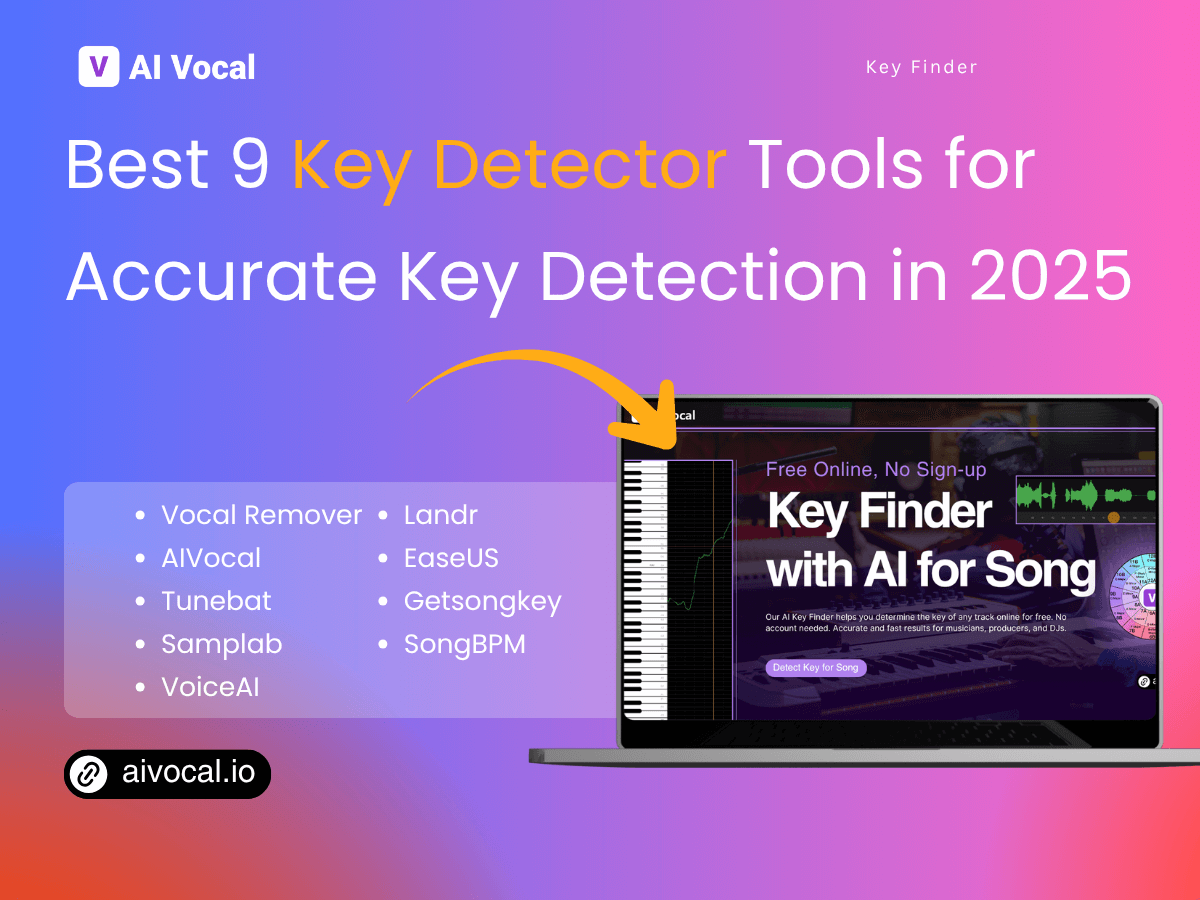Introduction to Key Detector
A key detector is an essential tool in modern music production and DJing, helping creators instantly identify a track’s musical key. Whether you’re remixing, harmonically mixing, or producing melodies, accurate key detection ensures seamless sound blending. Thanks to AI-powered song key detectors and machine learning, today’s tools can determine the key and scale of any song within seconds—making them indispensable for both beginners and professionals.
Why Accurate Key Detection Matters
Accurate key detection enables perfect harmony when mixing tracks or composing. A wrong key can disrupt a performance or make vocals sound off-pitch. For DJs, it helps maintain energy across transitions; for producers, it guides chord progressions and melody design. The rise of music key detector technology has made identifying tonal centers fast, reliable, and essential for smooth creative flow.
How Key Detector Tools Work
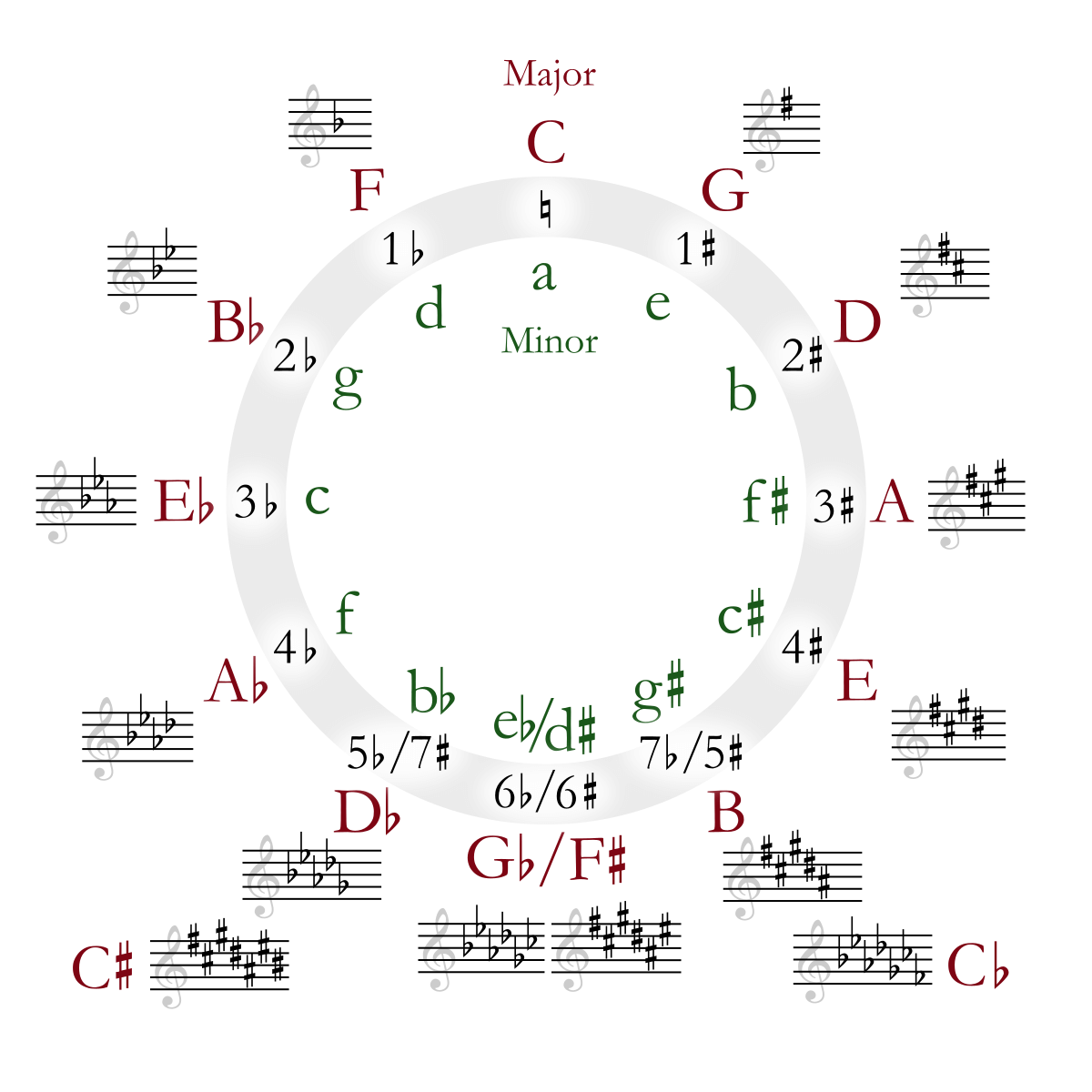
Modern key detector tools rely on AI algorithms and signal processing. They analyze pitch, harmonics, and BPM to estimate the key and scale of a song. Many combine Fourier Transform and neural network models to interpret complex sound data. Popular frameworks include LibROSA and Essentia, both open-source libraries for audio analysis. For technical reference, you can explore GitHub’s Essentia project—a widely used library in academic and commercial key detection research.
Top 9 Key Detector Tools for Accurate Key Detection in 2025
When working on music projects, I often struggled to identify the correct song key before remixing or tuning vocals. After trying dozens of tools, I realized that many key detection tools either lacked precision or were too complex. That’s why I tested and compared 9 of the best song key finder tools in 2025 — to find out which ones are truly accurate, user-friendly, and worth your time.
| Tool | Accuracy | Platform | Key + BPM Detection | Price | Ease of Use |
| Vocal Remover | ★★★★☆ | Web | Yes | Free | Easy |
| AIVocal | ★★★★★ | Web | Yes | Free | Very Easy |
| Tunebat | ★★★★☆ | Web | Yes | Free | Easy |
| Samplab | ★★★★☆ | Mac/Win | Yes | Free | Moderate |
| VoiceAI | ★★★☆☆ | Web | Yes | Freemium | Easy |
| Landr | ★★★★☆ | Web | Yes | Paid | Easy |
| EaseUS | ★★★★☆ | Win | Yes | Paid | Moderate |
| Getsongkey | ★★★★☆ | Web | Yes | Free | Very Easy |
| SongBPM | ★★★☆☆ | Web | Yes | Free | Easy |
The table above gives a quick overview, but every Key Analyzer tool has its strengths. Some tools focus on accuracy, while others stand out for simplicity or integration with BPM and key detector features. Let’s look at each one in more detail.
Vocal Remover
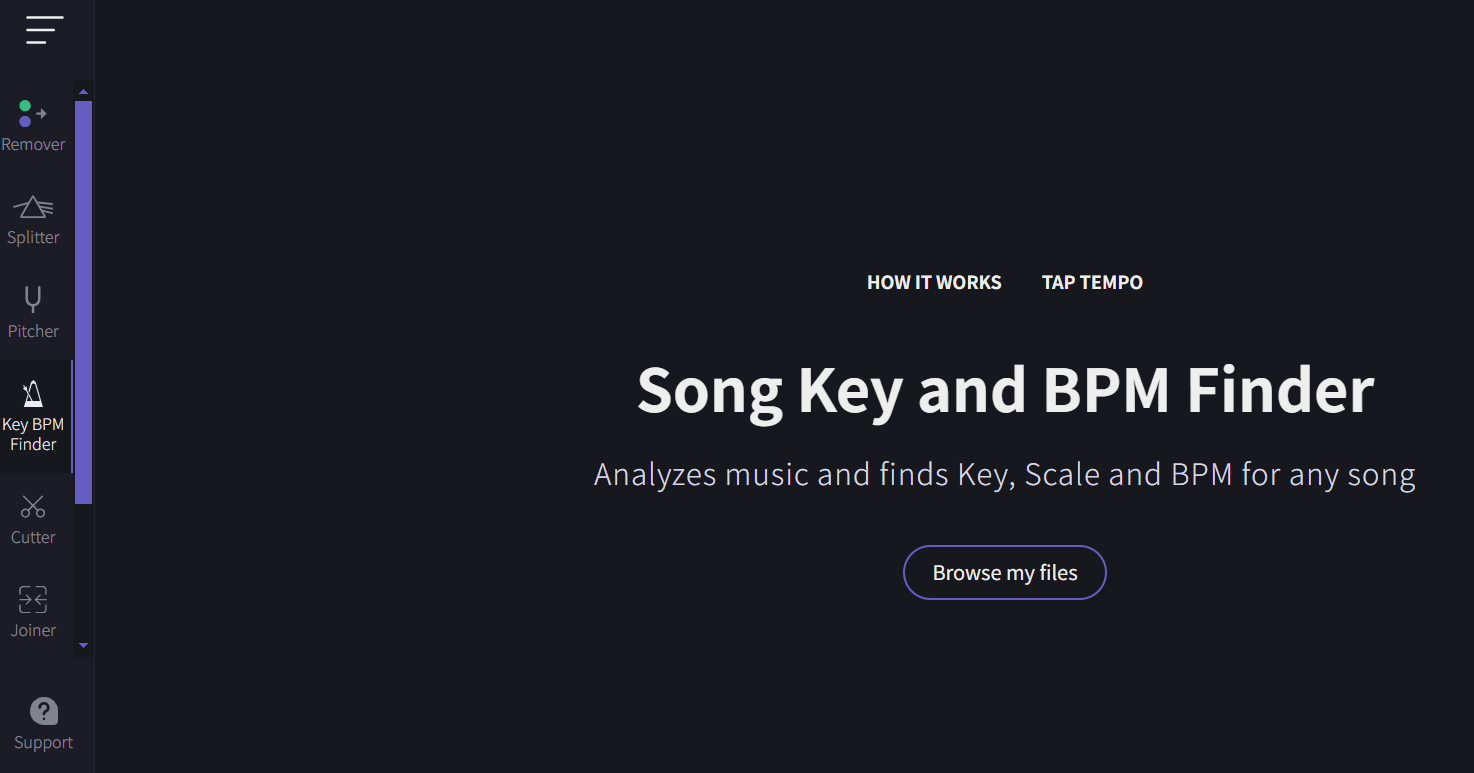
Originally designed for isolating vocals, Vocal Remover also includes a built-in song key finder. It’s great for quick online use—just upload your track, and it automatically detects the key and tempo. The accuracy is strong for pop and rock tracks, though complex jazz or instrumental music may need manual verification.
AIVocal

AIVocal combines a high-accuracy music key detector with advanced AI-powered features. It automatically identifies a song’s key, BPM, and chord progression, then lets you adjust pitch or generate new stems in the same tonal range. With no login required, it’s perfect for producers who want fast and precise key detection before remixing or vocal tuning.
Tunebat
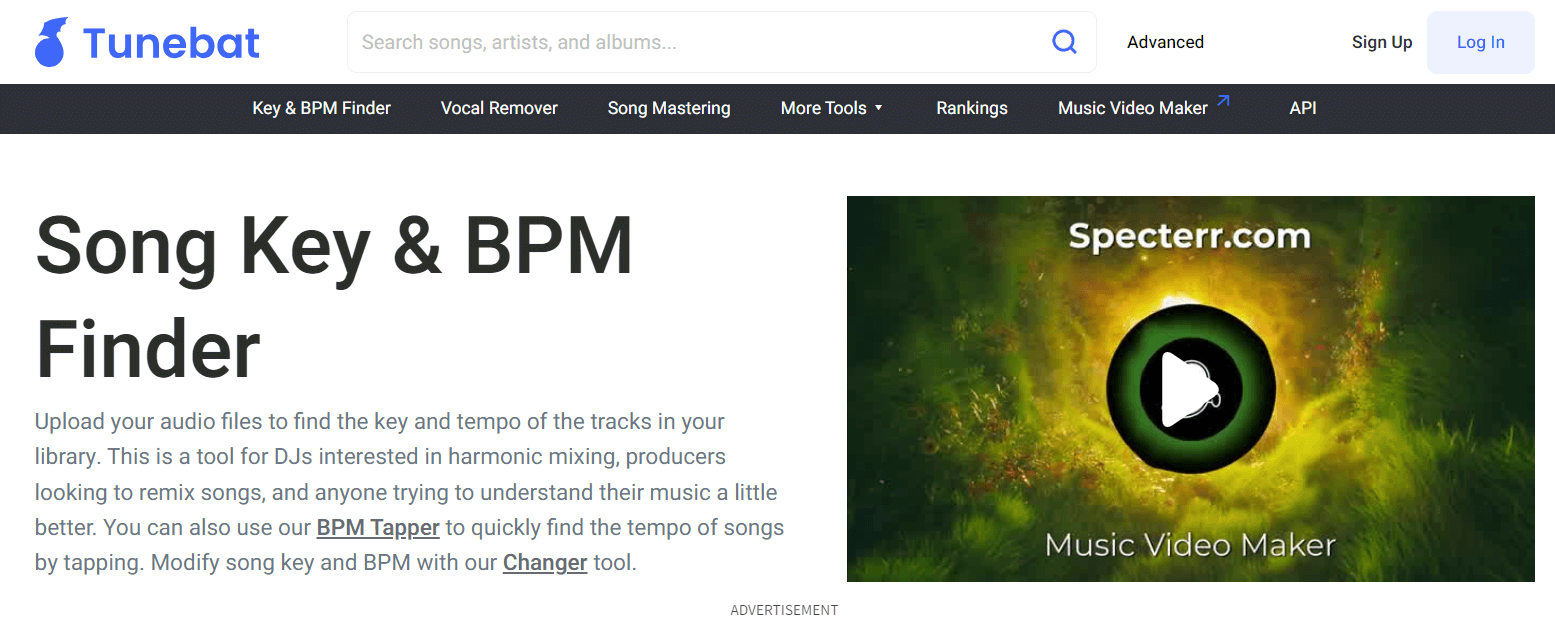
Tunebat provides DJs with automatic key and BPM detection, energy ratings, and harmonic mixing suggestions. It’s widely used by Spotify users and producers for playlist analysis. The tool also features a massive database, making it easy to compare multiple tracks by tonal compatibility.
Samplab
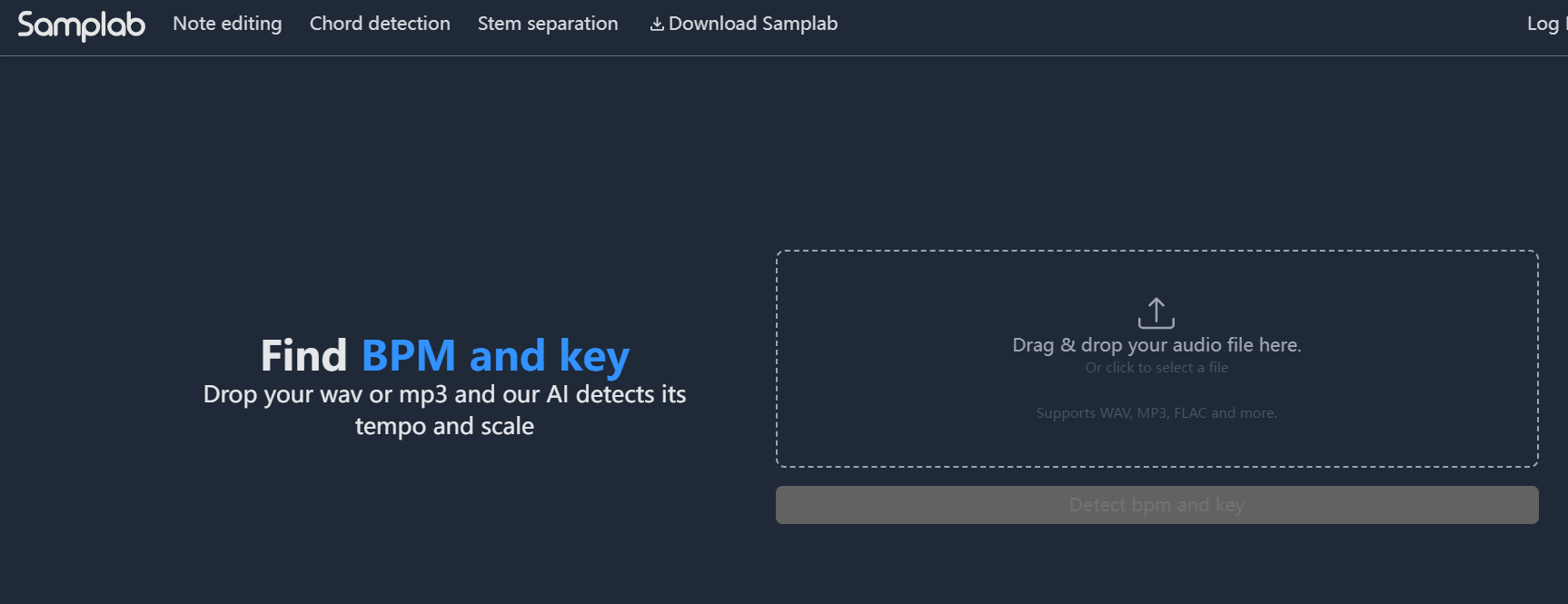
Samplab uses AI to detect and modify melodies within audio. It identifies the song key, converts samples into MIDI, and allows real-time pitch editing. Producers love it for transforming loops or vocals while maintaining the original harmonic context—a perfect example of next-gen key detection technology.
VoiceAI
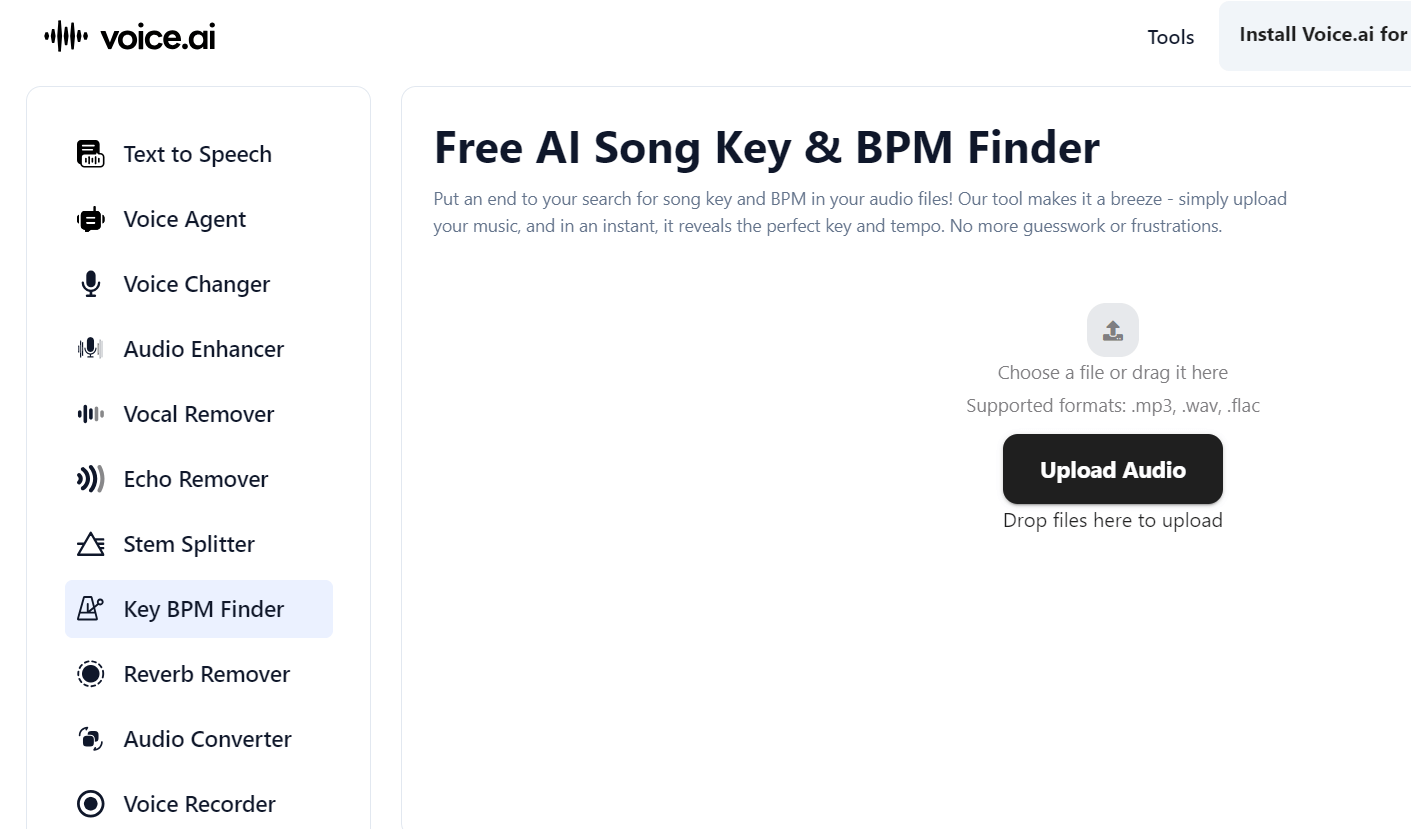
VoiceAI offers an integrated BPM and key analyzer for audio uploaded through its voice-processing interface. While not purely a key detection platform, it uses deep learning models to analyze tone and pitch variations, assisting users in tuning vocals and harmonizing layers effectively.
Landr
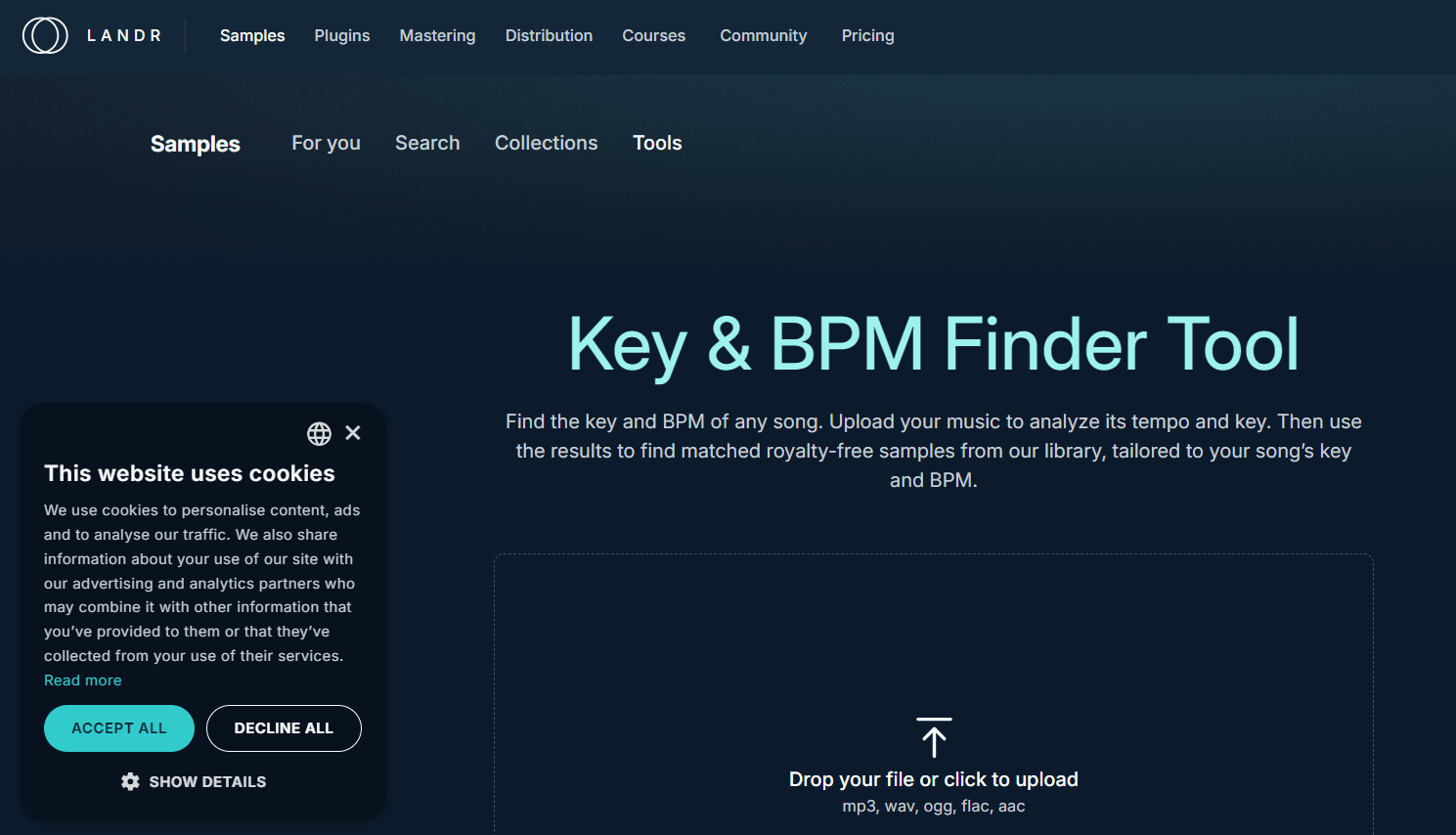
Landr’s music key detection is part of its mastering suite. It provides tonal and tempo analysis before mastering to help maintain harmonic balance. Though it’s a paid platform, professionals trust it for accuracy and integrated production workflow, making it a strong contender in 2025.
EaseUS
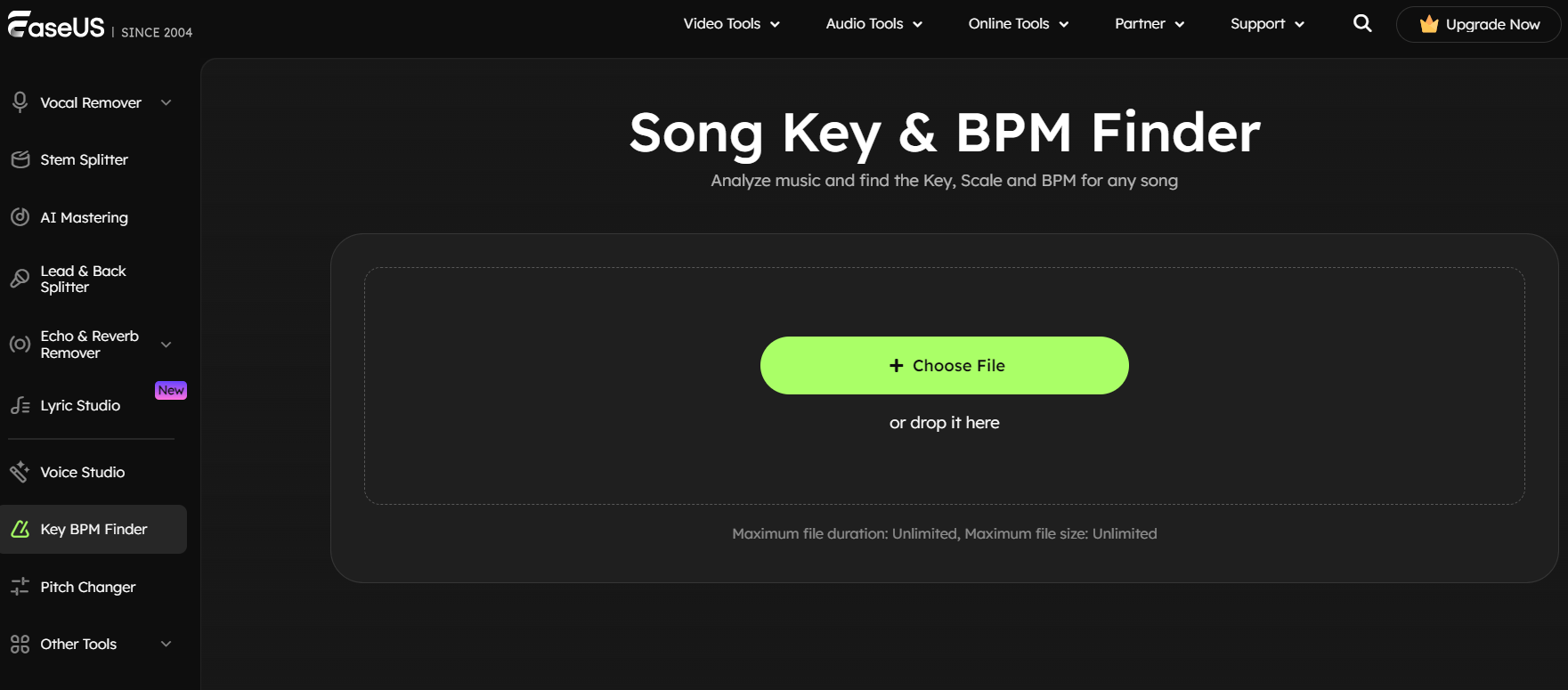
EaseUS Audio Editor includes a built-in key and pitch detector. It’s great for adjusting track tone and exporting harmonized versions. This desktop solution is perfect for those who prefer offline editing with precise key detection and sound manipulation features.
Getsongkey
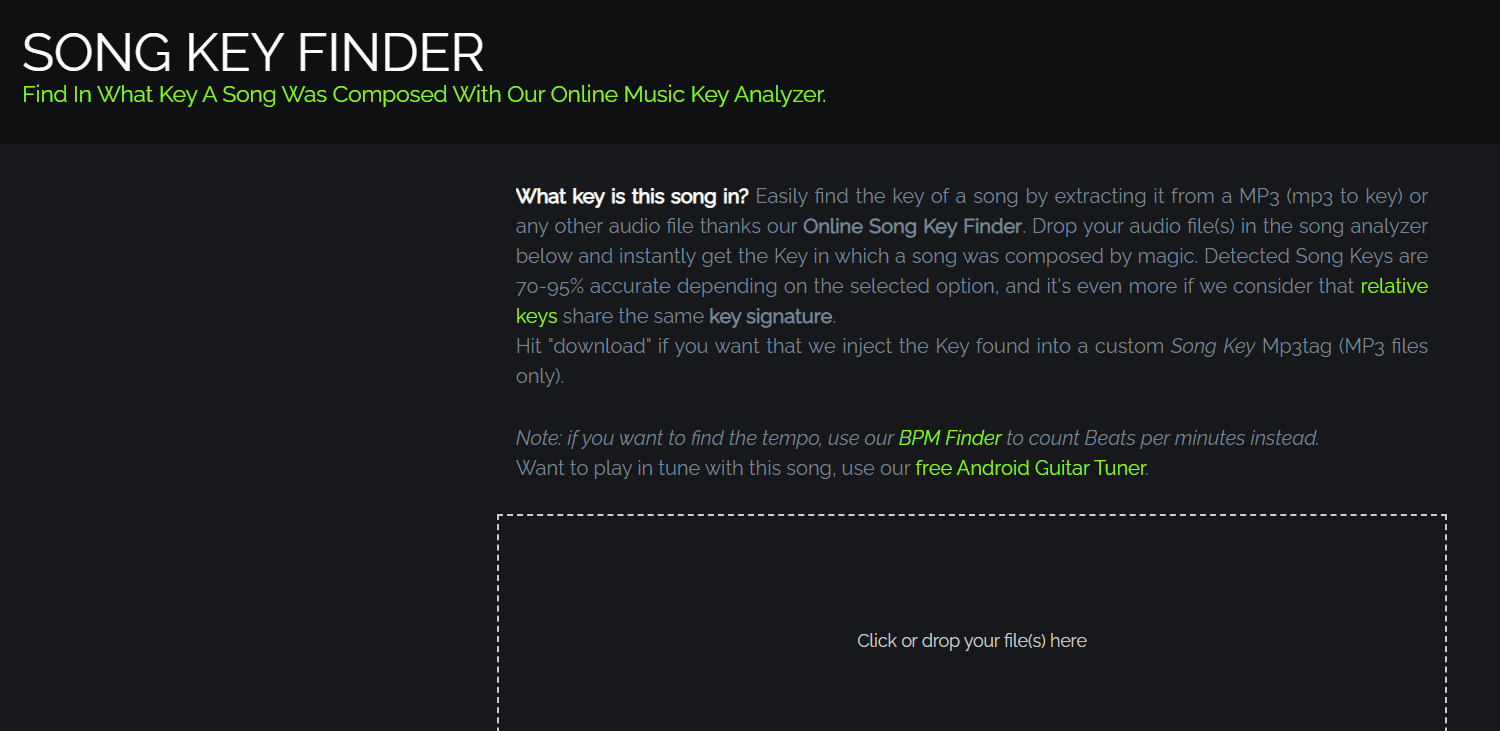
Getsongkey is a lightweight, web-based key detector offering quick results by song title or file upload. It integrates with Spotify and YouTube links, making it convenient for DJs preparing playlists. While less advanced than AIVocal, it’s a reliable, free choice for everyday use.
SongBPM
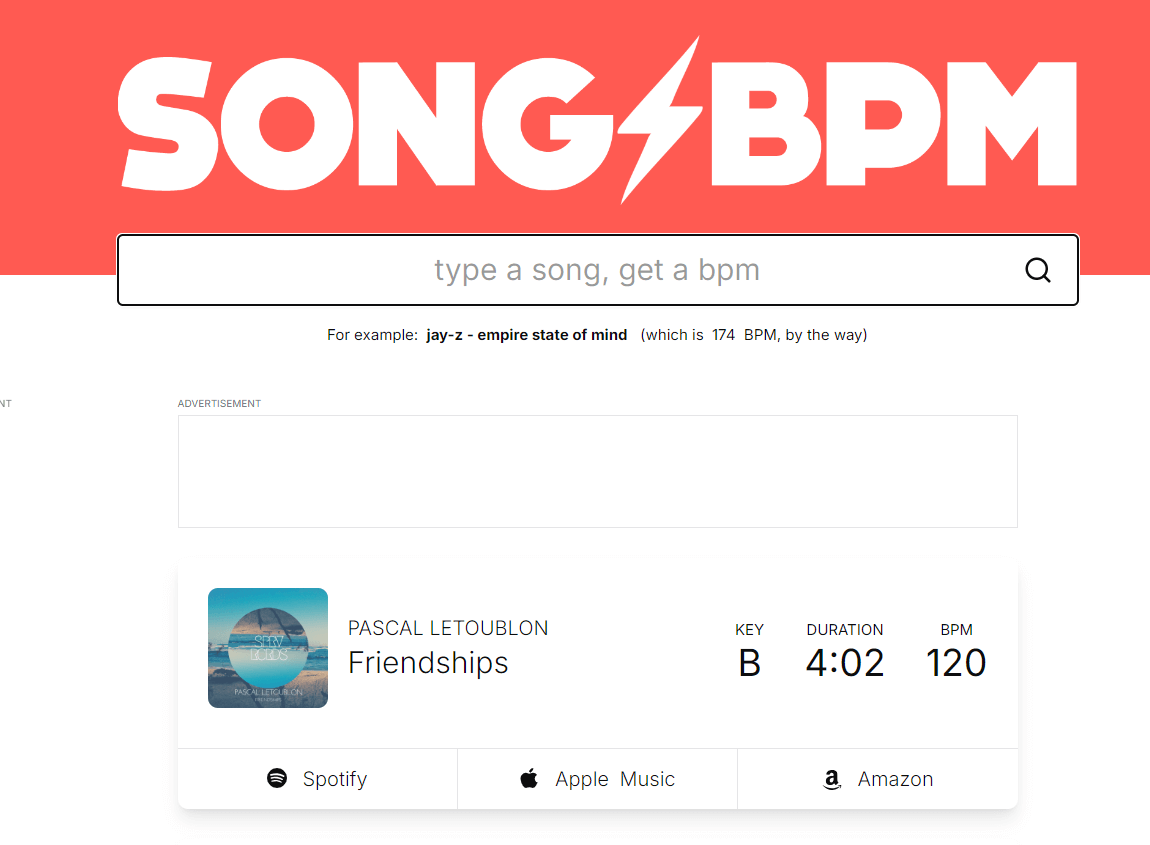
SongBPM detects both tempo and key of a track in seconds. Its minimalist design focuses on speed over advanced analytics, catering to DJs who need fast harmonic references. It’s one of the simplest tools online for quick tonal analysis.
After comparing all 9 tools, the biggest differences lie in detection accuracy, ease of use, and multi-feature integration. AIVocal stands out because it combines a music key detector with AI-based BPM, stem separation, and pitch correction—all accessible directly in your browser. This makes it ideal for anyone who wants to move from detection to editing without switching tools.
Now, let’s see how to use AIVocal’s key analyzer step by step.
How to Use A Key Detector: Step-by-Step Guide
Using a key detector can save hours of guesswork when producing, remixing, or analyzing a song. Whether you’re a DJ matching tracks by harmony or a producer tuning vocals, learning how to use a music key detection tool efficiently can drastically improve your workflow. Let’s walk through how to do it using AIVocal as an example.
Step 1 – Upload Your Song Go to AIVocal’s Key Finder page. You can drag and drop an audio file (MP3, WAV, or M4A) directly, or paste a YouTube or Spotify link. The tool is browser-based, so no downloads or installations are needed.
Step 2 – Let AI Analyze the Track Once uploaded, AIVocal’s system automatically detects the song key, BPM, and even extracts the chord progression. Its algorithm uses a combination of spectral analysis and machine learning to identify the tonal center accurately, even if your song includes multiple instruments or complex harmonies.
Step 3 – Review the Detected Key In seconds, you’ll see results like C Major or A Minor, along with BPM data. This lets you align your next vocal or instrumental track harmonically. The Key Recognition also provides a confidence rating, so you can see how reliable the detection is for your specific audio.
Step 4 – Experiment with Editing Tools AIVocal goes beyond key detection — it allows you to change the pitch or key of your track instantly. You can test how your song sounds in different keys before committing to a mix. This is especially useful for vocalists or remix artists who need to adjust key compatibility.
Step 5 – Download or Export After analyzing and editing, export your result directly. You can keep the music key analyzer output as reference or save the tuned audio version for future projects.
Overall, using a online key finder like AIVocal turns a technical process into a creative advantage — helping musicians move faster from analysis to production with precision and confidence.
FAQs about Key Detector
Q1: What is a Key Detector and Why Do Musicians Use It? A key detector is a tool that identifies the tonal key of a piece of music — for example, whether a song is in G major or E minor. Musicians use music key detector tools to harmonize vocals, remix songs, or create mashups that sound musically compatible. It’s a must-have for DJs, producers, and anyone dealing with pitch-sensitive tracks.
Q2: How Accurate Are Online Key Analyzer Tools? Modern song key Analyzers like AIVocal or Tunebat can achieve up to 95% accuracy using AI algorithms and spectral frequency analysis. However, accuracy can vary depending on track quality, background noise, and complex chord structures. Using a BPM and key detector together can help refine results.
Q3: Can I Use a key Finder for Live Performances? Yes. Many key finders offer real-time detection or integration with DJ software. Tools like GetSongKey or Tunebat let performers quickly identify the key of multiple songs before mixing them live, ensuring smoother transitions between tracks.
Q4: What File Formats Do Key Detectors Support? Most online key detection tools support MP3, WAV, FLAC, and M4A files. Some advanced ones like AIVocal also analyze YouTube or Spotify URLs directly, saving you the trouble of converting files manually.
Q5: Are There Free Key Detector Tools? Absolutely. Several free tools—such as GetSongKey, SongBPM, and AIVocal’s free version—allow unlimited uploads without sign-up. Paid versions usually add features like batch analysis, advanced AI detection, or integration with DAWs.
Q6: Can a Key Analyzer Identify BPM Too? Yes. Many modern tools combine BPM and key detection, giving you both tempo and tonal information at once. This combination helps DJs and remix artists build harmonic playlists that match rhythm and key seamlessly.
Q7: How Does a Key Detector Actually Work? A music key detector analyzes a track’s frequency spectrum, detecting which notes occur most frequently and how they relate harmonically. Machine learning models then compare the pattern to known musical scales to identify the likely key (e.g., F# minor).
Q8: Which Key Finder Tool Is Best for Beginners? If you’re new to key detection, AIVocal or Tunebat are great starting points. Both are web-based, intuitive, and offer accurate results in seconds. AIVocal also includes pitch and vocal adjustment tools, making it a more complete choice for creative users.
Q9: Can I Use Key Detection for Instrumental Music? Yes! Key recognition tools work on any audio file—whether vocals, instrumentals, or full mixes. However, instrumental tracks often yield even more accurate results since there’s less frequency overlap from vocals.
In short, a reliable key detector is one of the most valuable tools in any producer’s workflow — helping you work smarter, stay harmonically consistent, and unlock creative possibilities across your projects.
Conclusion
Key detector tools in 2025 have evolved into smart, AI-enhanced systems that ensure harmony across production, remixing, and DJ performance. Whether you use a song key detector like AIVocal for fast online results or a studio-grade solution like Landr, choosing the right tool depends on your workflow and sound goals. Accurate key detection remains at the heart of great music mixing.


